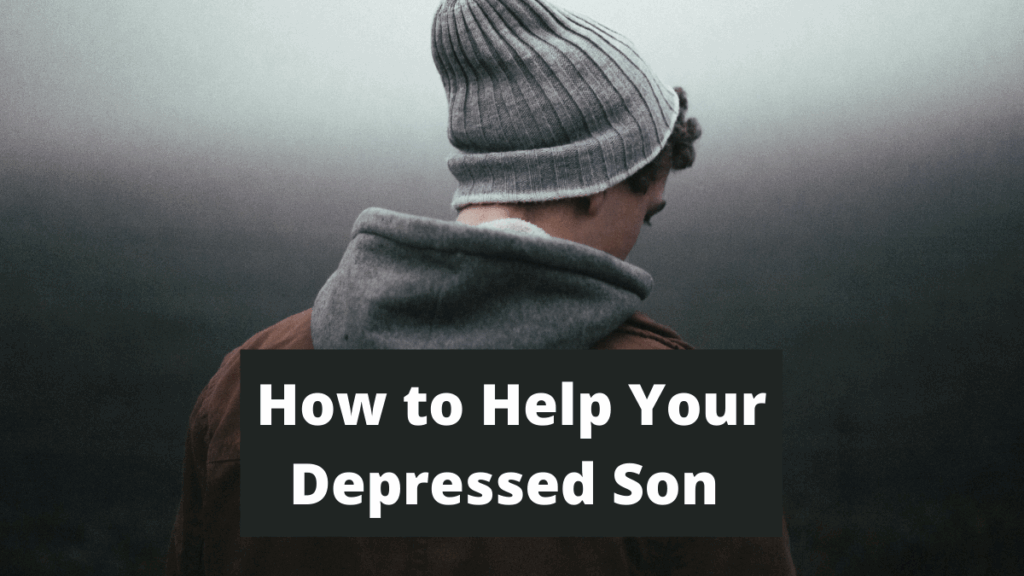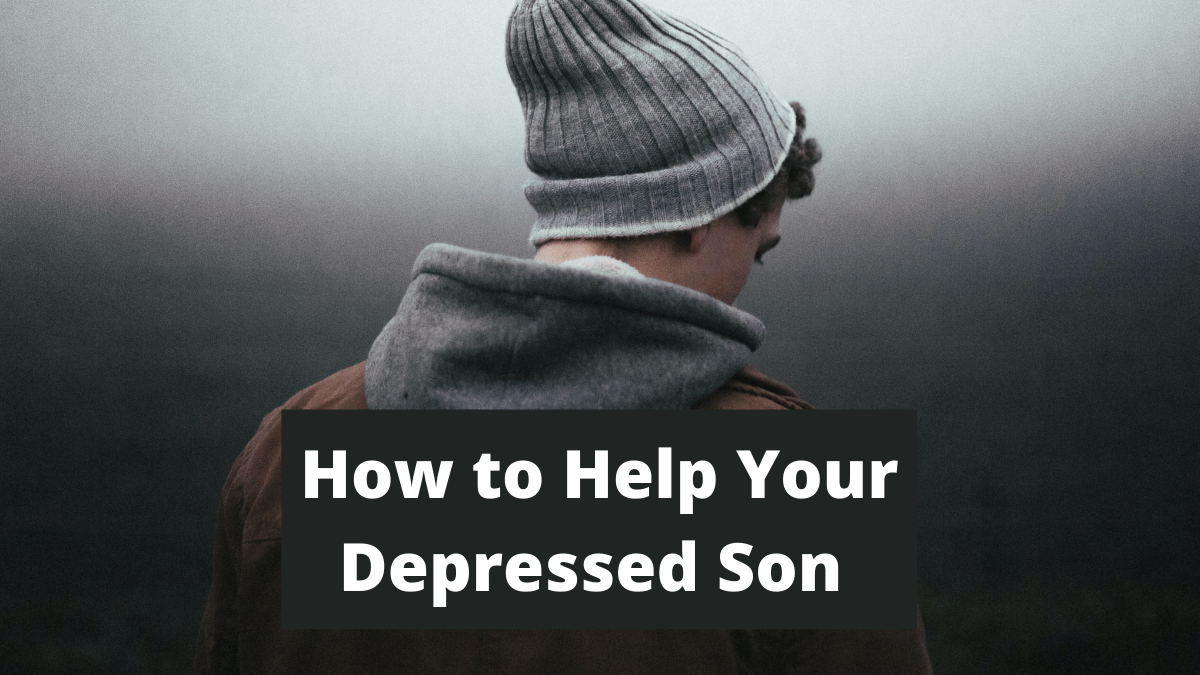
My Son Is Lonely and Depressed: Understanding the Signs and Finding Help
Discovering that my son is lonely and depressed is a heartbreaking experience for any parent. The combination of loneliness and depression can significantly impact a young person’s mental and emotional well-being. Recognizing the signs early and knowing how to provide support is crucial. This article aims to provide a comprehensive understanding of the issue, offering insights into the symptoms, potential causes, and effective strategies for helping your son navigate through this challenging time. It’s important to acknowledge that feeling lonely and experiencing depression are distinct, yet often intertwined, conditions that require sensitive and informed intervention.
Recognizing the Signs of Loneliness and Depression in Your Son
It’s essential to differentiate between typical teenage moodiness and more serious signs of loneliness and depression. While every teenager experiences occasional sadness or withdrawal, persistent symptoms warrant closer attention. Here are some key indicators to watch for:
- Persistent Sadness or Irritability: A prolonged period of feeling down, tearful, or easily agitated.
- Loss of Interest in Activities: A noticeable decline in enthusiasm for hobbies, sports, or social events they once enjoyed.
- Changes in Sleep Patterns: Difficulty sleeping (insomnia) or sleeping excessively (hypersomnia).
- Changes in Appetite or Weight: Significant weight loss or gain when not dieting.
- Fatigue and Lack of Energy: Feeling constantly tired and lacking the energy to engage in daily activities.
- Withdrawal from Friends and Family: Isolating themselves from social interactions and spending more time alone.
- Feelings of Worthlessness or Guilt: Expressing negative self-perceptions and blaming themselves for things.
- Difficulty Concentrating: Struggling to focus on schoolwork or other tasks.
- Physical Symptoms: Unexplained headaches, stomachaches, or other physical complaints.
- Thoughts of Death or Suicide: Any mention of wanting to die or feeling like they would be better off dead should be taken extremely seriously. Seek immediate professional help.
If you observe several of these signs in your son, it’s crucial to address the situation with sensitivity and concern. It could be that my son is lonely and depressed and requires intervention.
Potential Causes of Loneliness and Depression in Teenagers
Several factors can contribute to loneliness and depression in teenagers. Understanding these potential causes can help you better address the underlying issues:
- Social Isolation: Difficulty making or maintaining friendships, feeling excluded by peers, or experiencing social anxiety.
- Academic Pressure: Stress related to school performance, exams, and future educational goals.
- Family Issues: Conflict within the family, divorce, financial difficulties, or loss of a loved one.
- Bullying: Experiencing bullying, either in person or online (cyberbullying).
- Low Self-Esteem: Negative self-perception and lack of confidence.
- Body Image Issues: Dissatisfaction with their physical appearance, often fueled by social media and societal pressures.
- Traumatic Events: Experiencing a traumatic event, such as an accident, assault, or natural disaster.
- Mental Health Conditions: Underlying mental health conditions, such as anxiety disorders, ADHD, or learning disabilities.
- Social Media Use: Excessive social media use, which can lead to feelings of comparison, inadequacy, and isolation.
- Lack of Purpose or Meaning: Feeling a lack of direction or purpose in life.
It’s important to consider these factors when trying to understand why my son is lonely and depressed. A combination of these issues may be at play.
Strategies for Supporting Your Son
Once you’ve recognized the signs and considered potential causes, you can take steps to support your son. Here are some effective strategies:
Open Communication
Create a safe and non-judgmental space for your son to talk about his feelings. Let him know that you are there to listen without interrupting or offering unsolicited advice. Use open-ended questions to encourage him to share his thoughts and emotions. For example, instead of asking “Are you okay?” try “How are you feeling today?” or “What’s been on your mind lately?” If my son is lonely and depressed it’s important to let him know he is not alone and can talk to you about it.
Active Listening
When your son is talking, practice active listening. This means paying attention to what he is saying, both verbally and nonverbally. Make eye contact, nod your head to show that you are engaged, and summarize his points to ensure you understand. Avoid interrupting or offering solutions until he has finished speaking.
Validate His Feelings
Acknowledge and validate your son’s feelings, even if you don’t fully understand them. Let him know that it’s okay to feel sad, lonely, or depressed. Avoid dismissing his feelings or telling him to “snap out of it.” Instead, say things like, “I understand that you’re feeling sad, and that’s okay” or “It sounds like you’re going through a tough time.”
Encourage Social Interaction
Help your son reconnect with friends or explore new social opportunities. Encourage him to participate in activities he enjoys, join clubs or sports teams, or volunteer in the community. If he’s hesitant to go out, offer to accompany him to the first few events. Facilitate opportunities for him to spend time with peers who share his interests. If my son is lonely and depressed, social interaction can be a helpful tool.
Promote Healthy Habits
Encourage your son to adopt healthy habits that can improve his mood and overall well-being. This includes getting regular exercise, eating a balanced diet, and getting enough sleep. Physical activity releases endorphins, which have mood-boosting effects. A healthy diet provides the nutrients needed for optimal brain function. Adequate sleep is essential for emotional regulation and cognitive performance. Limit screen time, especially before bed, as it can interfere with sleep patterns.
Seek Professional Help
If your son’s symptoms persist or worsen, it’s essential to seek professional help. A therapist or counselor can provide support, guidance, and evidence-based treatment for loneliness and depression. Cognitive-behavioral therapy (CBT) and interpersonal therapy (IPT) are two common types of therapy that can be effective in treating these conditions. A psychiatrist can evaluate your son for medication if necessary. Don’t hesitate to reach out to a mental health professional if you’re concerned about your son’s well-being. Finding out that my son is lonely and depressed can be scary, and professional help is crucial.
Limit Social Media Use
Encourage your son to limit his social media use. Studies have shown a strong correlation between excessive social media use and increased feelings of loneliness and depression. Social media can create unrealistic expectations and foster a sense of comparison and inadequacy. Encourage your son to engage in real-life interactions rather than relying on social media for connection.
Involve the School
If your son is struggling with academic pressure or bullying at school, involve the school counselor or administration. They can provide support and resources to help him cope with these challenges. The school counselor can also help identify any underlying learning disabilities or mental health conditions that may be contributing to his difficulties. If my son is lonely and depressed, it may be beneficial to involve the school.
Family Therapy
Consider family therapy as a way to address any underlying family issues that may be contributing to your son’s loneliness and depression. Family therapy can help improve communication, resolve conflicts, and strengthen family bonds. It can also provide a supportive environment for your son to express his feelings and work through his challenges.
Encourage Hobbies and Interests
Support your son in pursuing hobbies and interests that bring him joy and fulfillment. Engaging in activities he enjoys can boost his self-esteem, provide a sense of purpose, and help him connect with others who share his interests. Encourage him to explore new hobbies or revisit old ones that he may have abandoned.
Be Patient and Supportive
Remember that overcoming loneliness and depression is a process that takes time and effort. Be patient and supportive of your son throughout his journey. Celebrate his small victories and offer encouragement during setbacks. Let him know that you are there for him no matter what.
When to Seek Immediate Help
If your son is experiencing any of the following symptoms, seek immediate professional help:
- Thoughts of death or suicide
- Self-harming behaviors
- Severe anxiety or panic attacks
- Hallucinations or delusions
- Substance abuse
These symptoms indicate a serious mental health crisis that requires immediate intervention. Contact a mental health professional, crisis hotline, or emergency room for assistance.
Conclusion
Discovering that my son is lonely and depressed is a challenging experience, but with understanding, support, and professional help, he can overcome these difficulties. By recognizing the signs, addressing the underlying causes, and implementing effective strategies, you can help your son navigate through this challenging time and regain his sense of well-being. Remember to prioritize open communication, validate his feelings, encourage social interaction, promote healthy habits, and seek professional help when needed. With your love and support, your son can find his way back to happiness and fulfillment. It’s important to remember that my son is lonely and depressed, but this is not a permanent condition. With the right help and support, he can recover and thrive.

